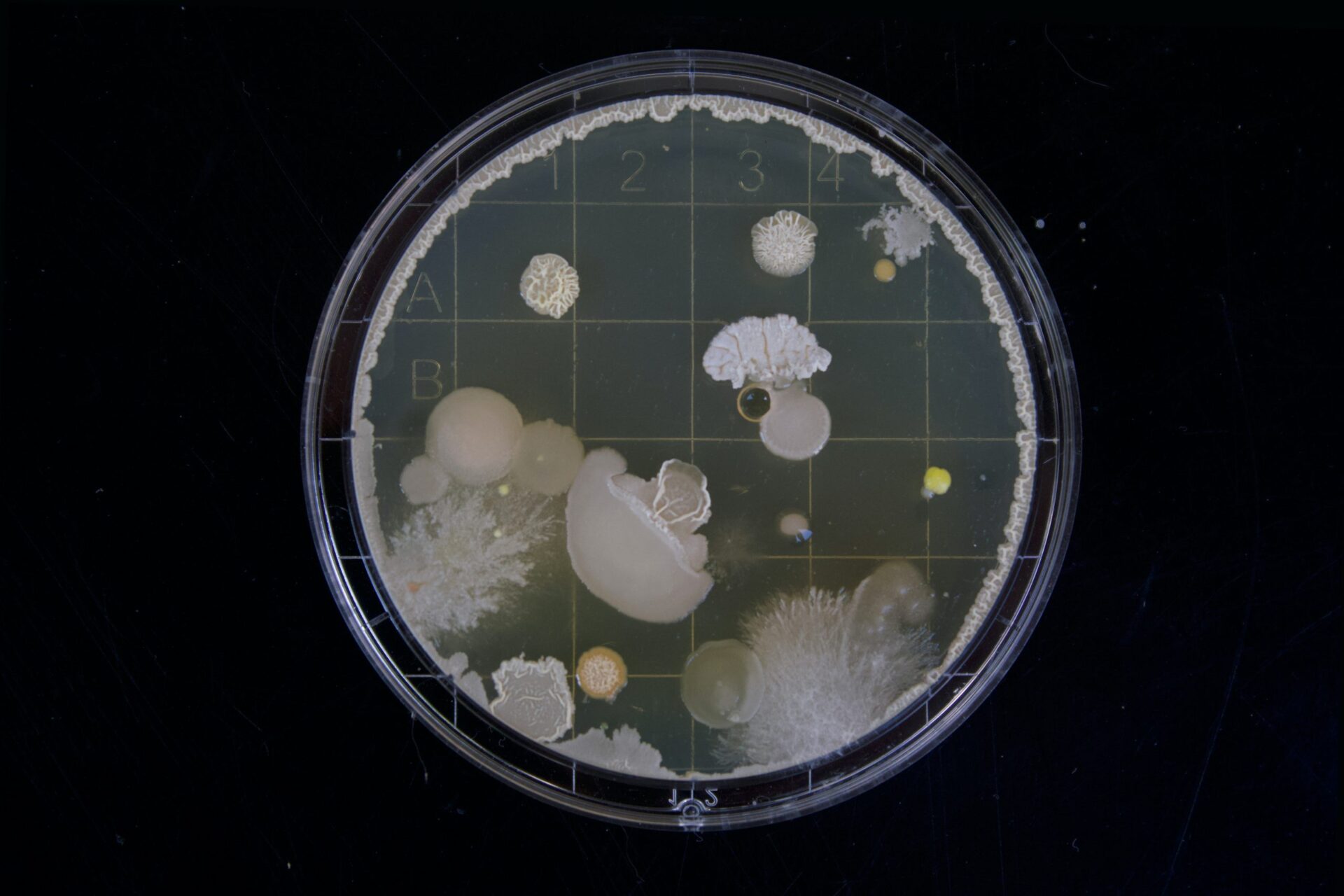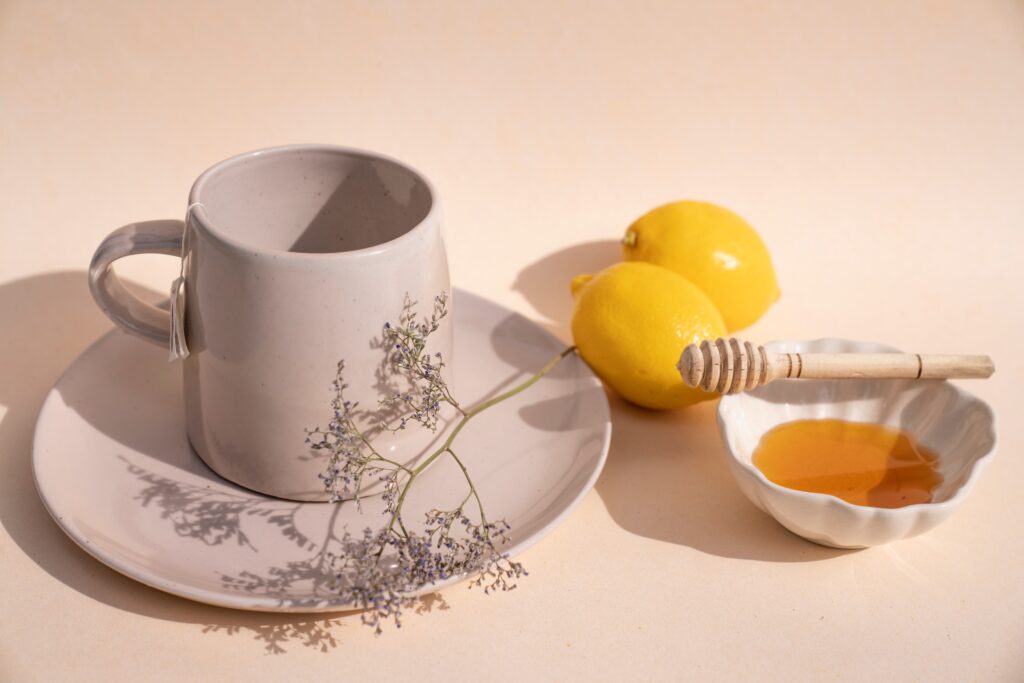I think by now most of us know our gut health is linked to almost every aspect of our health, but how is the gut linked to your hayfever symptoms is a good question, which we are going to explore in this blog.
Firstly, 70 – 80 percent of our immune system is located in the gut. It is our first line of defence when it comes to foreign invaders, and if your immune system over-reacting in the form of seasonal allergies, it is in almost all cases a great place to start when it comes to healing and regulating this response.
There are two main mechanisms in which gut health is indicated in allergies, and they both are interconnected in nature.
1. The Gut Microbiome
The microbiome is made up of bacteria, which reside largely in the gut, as well as all over the body. Some of these are beneficial, some are negative, and some are neutral and can be persuaded to either side depending on the conditions.
Over the years it has been shown that the health of an individual’s microbiome is related to allergic susceptibility and presentation. Through studies they have found this is because; a healthy microbiome, with good diversity can influence and regulate immune responses i.e allergic reactions, reduce inflammation in the airways and nasal passages, possibly promote tolerance to allergens long term, and support the health and integrity of the gut lining and mucosa – bringing us to our next main point!
2. The Gut Lining
The gut lining is made up of tiny little square cells, which are connected by something called tight junctions. These junctions hold the cells tightly together creating a barrier which keeps the contents of your gut – food / drinks and anything else you inhale in your gut, only allowing what it needs to be absorbed through the barrier into the bloodstream. However when these junctions are not functioning properly they can become loose and let larger particles and antigens through and into the bloodstream. This is called intestinal permeability or more commonly known as ‘leaky gut’.
As these particles are not supposed to be absorbed they are usually pro-inflammatory and in the case of antigens can contribute to worsened allergic symptoms.
Tips to Support a Healthy Gut lining and Microbiome
1.Reduce sugar, alcohol, inflammatory foods (fast food, fried food, highly processed foods etc…) and smoking.
All of these have been shown to negatively affect microbial diversity and gut lining health.
2. Manage your stress
Yes your gut and your brain are connected, and stress has been shown to effect your gut health – fun fact: this also acts vice versa.
3. Include a variety of plant foods in your diet
A high diversity of plant foods in your diet is linked to a vaster microbiome diversity, which is linked to less allergies – so challenge yourself to see how many you can fit in ? research has shown 40 is ideal for optimal diversity!
Challenge: Try a new (to you) vegetable or fruit this week and tag us on social media @malvernnaturalhealthcare
4. Include Fibre rich and prebiotic foods
Fibre and prebiotic foods are the food to your gut microbes, they eat it, they love it and they produce anti-inflammatory compounds from it!
Prebiotic foods include artichokes, green banana flour, asparagus, onions, apples, garlic, jerusalem artichokes, chicory, as well as most of your high fibre foods:
To increase fibre; switch out your refined white flour, and increase your whole-grains, nuts, seeds, legumes, vegetables and fruits! We also have lots of functional fibre supplements in the clinic – speak to your Naturopath about whether these could be beneficial for you at your next consultation.
5. Get a pet!
Yes we are giving you permission to get the puppy or the cat you’ve always dreamed of. In all seriousness though exposure to pets especially in infants, has been shown to increase the diversity and richness of the microbiome significantly. And this has correlated to lack of pet exposure predisposing atopy in children!
6. If you’re a soon to be mama take a probiotic and eat well !
Specific probiotics have been shown to improve babies microbiomes when mothers have taken them during pregnancy. Good nutrition during pregnancy is also vital to establishment of the infant’s microbiome. Please book in for a naturopathic consult to ensure you are getting the right probiotic and care for your personal situation.
7. Get outside, and into nature!
By being in nature, similar to being around pets we expose ourselves to a diverse range of bacteria – which supports internal microbial diversity
8. Eat stewed apples
As stated before apples are a great prebiotic food as they contain pectin, which is not only great for your microbiome, but also healing and supportive to your gut lining. Apples are also rich in quercetin which inhibits the production and release of histamine !
Stewed apples with cinnamon and yogurt is a treat and half for your gut and you !
9. Eat foods rich in polyphenols!
Polyphenol rich foods include: cocoa, grape, green tea, blueberries, pomegranate, blackberries.
Polyphenols help regulate our gut bacteria, increasing beneficial species and reducing species that are not.
10. Eat fermented foods
This is last, not least, but with caution.
Fermented foods can increase histamine, therefore if you are someone who is experiencing chronic allergies, you may wish to go easy (meaning have small amounts and build up, taking note of your symptoms) on the fermented foods until you have worked with a Naturopath to improve your gut health and immune system first.
Fermented foods include: kimchi, sauerkraut, kefir, yogurt, tempeh, and many others.
Including a portion of fermented food in your day each day is an easy and delicious way to improve your gut health and microbial diversity!
I hope this blog has given you some insight into the deeper layers that may be contributing to your symptoms, and reminds you (as always) of the great importance of the gut!
If you think your gut health may be contributing to your allergy symptoms, please book in a consult with one of our lovely Naturopaths. Gut health is our bread and butter and we love to help in this area!
References:
Watts, A. M., West, N. P., Zhang, P., Smith, P. K., Cripps, A. W., & Cox, A. J. (2021). The Gut Microbiome of Adults with Allergic Rhinitis Is Characterised by Reduced Diversity and an Altered Abundance of Key Microbial Taxa Compared to Controls. International archives of allergy and immunology, 182(2), 94–105. https://doi.org/10.1159/000510536
Han, P., Gu, J. Q., Li, L. S., Wang, X. Y., Wang, H. T., Wang, Y., Chang, C., & Sun, J. L. (2021). The Association Between Intestinal Bacteria and Allergic Diseases-Cause or Consequence?. Frontiers in cellular and infection microbiology, 11, 650893. https://doi.org/10.3389/fcimb.2021.650893


















